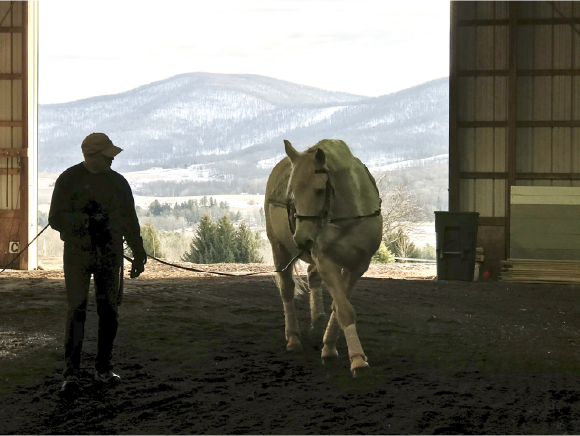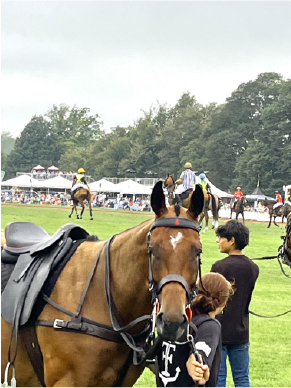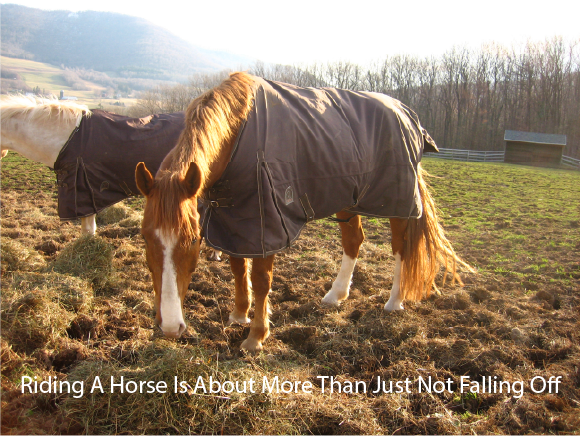Riding A Horse Is About More Than Just Not Falling Off
By Nikki Alvin-Smith
For many horse owners the movies, TV shows and media representation of equestrianism in their productions is an off-base mixture of annoying inaccuracies and raucous amusement. Film-makers need to do better. Whatever the level of the spend, from a multi-million-dollar production to a Tik-Tok video and everything between, horses can add powerful backdrops to the storyline and significantly increase engagement when they are incorporated with an eye to authenticity.
No, horses don’t neigh or make horsey noises every time they enter frame. And no, riding a horse is not just about being able to stay on board. Though admittedly, that is a good place to start I suppose.
Equestrianism is not showcased at its finest on screen. Everything from documentaries that delve into country life such as, “The Curious House Guest,” with Jeremy Musson to random riding adventures incorporated in celebrity programming such as Gordon Ramsay’s exploits with chef buddies Italian Gino D'Acampo and French master maître d’ Fred Sirieix in, “Gordon, Gino and Fred: Road Trip,” are littered with nonsensical attitudes and dumb comments in regard to horses.
No-one minds the inability (though brave and sometimes foolhardy attempts) at the art of riding from those unschooled in the activity. It does make good TV and it is lovely to see the world from the back of the horse displayed on the big and small screen.
As experienced horse folk we are not beyond coming up short in our own equestrian talents. Perhaps your own inadequacies or shortfalls in sitting properly on a horse could be improved and your ‘seat’ developed to be truly independent of use of reins or gripping legs to hold on?

If you are a horse aficionado, what are your 2025 plans as an equestrian of more accomplished talents in the saddle or out of it? Have you learned more about how horses communicate than just how to lead them about and tack them up? Pick up feet and kick them on? Do you know what the different noises they make mean or how their body language indicates certain emotions and intentions?
Actually while we are on the topic now is as good a time as any to get on with that.
The New Year always brings with it a time for reflection and for resolutions for improvement. Valuable time that allows us to reboot, reset and refresh. Our horses of course don’t think this way. Every day that comes along is just another day. Every hour just another hour. Living in the moment must have sincere benefits when you think about it. But I digress..
As a film producer and film director you do want your work to have that all important authenticity.
So if you are involved in the film production business on any level perhaps it is time to relinquish your belief that you don’t need a ‘wrangler’ or need to pay special attention in production design in regard to knowledge of horses and horsemanship where these are to be included on the storyboard.
It’s time to employ a professional horse personage that is ‘au fait’ with the details of the tack, horse habits, equipment in general and how to train someone to safely lead and handle a horse including how to shoot it from behind the lens. Another technique obviously sadly lacking in many of the DoP’s you may meet on set. And how many first AD’s responsible for the smooth-running of a production know or care about how long a horse is expected to stand in the hot sun waiting for its scene, or what sights and sounds and movements on set should be kept at a minimum when an actor inexperienced as a rider is in the saddle?
 Many years ago when I was in my late teens, my then boyfriend who was an aspiring actor asked me to teach him to ride my horse. His reasoning was that as an actor it was important to not just list riding as an ability on the resume and lie about it the way most actors do but to actually have the wherewithal to complete a ride with compassion for the horse and show some talent at the endeavor. Those days seem to have been lost in the professional world of film-making.
Many years ago when I was in my late teens, my then boyfriend who was an aspiring actor asked me to teach him to ride my horse. His reasoning was that as an actor it was important to not just list riding as an ability on the resume and lie about it the way most actors do but to actually have the wherewithal to complete a ride with compassion for the horse and show some talent at the endeavor. Those days seem to have been lost in the professional world of film-making.
In recent years my involvement in small or minor budget-level in film production as showrunner and scriptwriter included time spent with regional film commissioners.
I asked one gentleman who had much experience in the film world about his interest in promoting the use of horses in film or how their availability for use in film in the region might help boost interest in specific casting locations. His reaction surprised me. To paraphrase he explained ( in rather a dismissive tone) that in his opinion horses were available everywhere, and that prospective incoming film producers were never bothered about having horses on hand, they were basically considered part of the props on set.
Of course, where the horse features as a central character in a production the actual animal matters more. Well- you’d think!
Then there is the question of incidences that are abusive to horses. How many of us equine aficionados have seen a carriage being pulled by a lame or under horse-powered animal or witnessed brutal riding with horse bits designed for the actor’s lack of confidence in the saddle and ability to halt a horse. Or watched a movie showcasing the story of a leading racehorse in history, referenced by use in some frames of the wrong breed of horse entirely. Or seen animated horses in Disney productions characterized as getting up from a recumbent position like a cow or drinking water by lapping at it like a dog.
Film animation generally does an awful job of providing any accuracy in how a horse eats, moves or interacts with humans and other animal life or with its environment. If only there was someone they could ask for advice. Or somewhere they could look.
AI is not much better. If you read a ‘summary’ of horse care or training on AI you are likely to be headed down the wrong track entirely. I’m sure it will get better given time, but no-one is checking on its fallibility meantime.
Horse-riding (or as it is amusingly called in the U.S.A, horse-back riding, as if you’d ride on another part of a horse!), is truly about more than just not falling off.
As John Wayne said in real life (based obviously in his successful cowboy persona created for the screen), "Courage is being scared to death - and saddling up anyway."
While evidently this statement was not meant to be taken literally, it could be. Especially if you are an actor or a producer/director responsible for an actor’s health and well-being around and on horses. But it doesn’t have to be this way. You could simply reach out and get some professional input and take it to heart.



